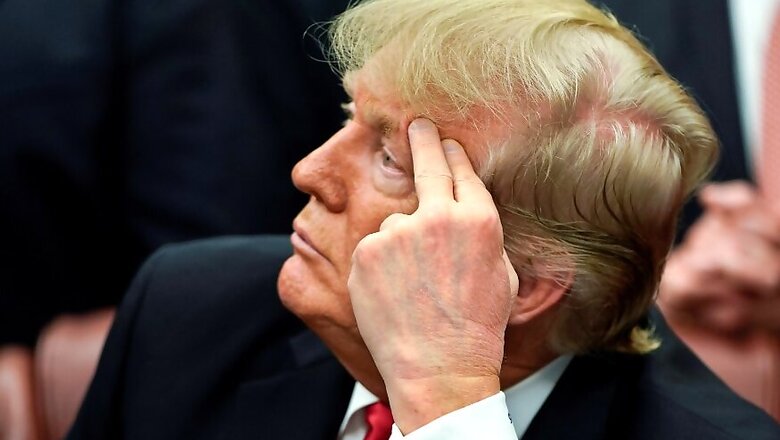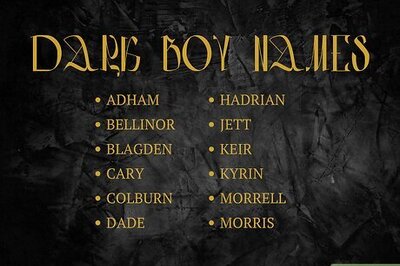
views
In his report on the origins of the FBI’s Russia investigation and in testimony before Congress on Wednesday, the inspector general of the Department of Justice, Michael Horowitz, demolished President Donald Trump’s most sensational allegations about the Russia inquiry: He concluded that the opening of the investigation was lawful and legitimate, that there was no improper “spying” on the Trump campaign and that the FBI wasn’t part of some “deep state” conspiracy to overthrow the president.
That hardly stopped Trump and his allies. The report “was far worse than expected,” the president asserted — after already predicting it would be “devastating.” “This was an attempted overthrow, and a lot of people were in on it, and they got caught; they got caught red-handed,” Trump said in the Cabinet Room at the White House.
Attorney General William Barr was quick to pile on, too: “The inspector general’s report now makes clear that the FBI launched an intrusive investigation of a US presidential campaign on the thinnest of suspicions that, in my view, were insufficient to justify the steps taken,” he said in a Justice Department statement.
Media coverage and Senate hearings quickly shifted to the FBI’s procedural failings, which Horowitz labeled “gross incompetence.” By the end of the week, Americans could be forgiven for thinking that the FBI was indeed part of some sinister coup attempt — precisely the opposite of what Horowitz had concluded.
So much for the supposedly nonpartisan and independent office of the Department of Justice Inspector General — which, before the Trump administration, most Americans hardly knew existed. To a striking degree, Trump and his allies have turned the post into a potent weapon aimed at his supposed enemies in federal law enforcement agencies.
Their ability to wreak political havoc with the latest Horowitz report is part of what has now become a clear pattern: Call for an investigation of a favorite Trump target, speculate about the likely outcome, seize on any collateral evidence that emerges, spin the results, then move quickly to the next investigation. Repeat.
The White House and Republicans in Congress insisted that the inspector general open an investigation into the origins of the Russia inquiry, even though it was already thoroughly covered in a report from the special counsel Robert Mueller. Investigators armed with virtually unlimited time and budget will nearly always find something (as critics of the special counsel role have long argued).
Horowitz uncovered some new details, and the irregularities he discovered in the FBI’s Foreign Intelligence Surveillance Act application process may well prompt a needed overhaul of the standards for intrusive surveillance of American citizens. But Horowitz conceded that even if all of those problems had been corrected, he couldn’t say the outcome would have been any different. Nor do they fundamentally change our understanding of how and why the Russia investigation began — already reported in considerable and accurate detail, including in this newspaper and in my recent book, “Deep State.”
But no matter how redundant, such investigations can serve as useful fishing expeditions. Six House committees conducted investigations of Hillary Clinton’s role in the Benghazi attacks. All of them absolved her of any wrongdoing. But it was in one of those investigations that a committee uncovered her use of a personal server for her email correspondence, which led to the FBI’s Clinton email investigation. That provided candidate Trump with his “Lock her up” chant — and arguably cost her the presidency.
Horowitz, citing requests from members of Congress and the public, spent 17 months examining the FBI’s handling of the Clinton email case. His conclusion: There was “no evidence” that the decision not to seek charges against Clinton was “affected by bias or other improper conclusions,” the opposite of what Trump had been asserting for months.
But during that investigation, Horowitz uncovered hundreds of texts between an FBI agent, Peter Strzok, and an FBI lawyer, Lisa Page, that suggested animus toward Trump and also revealed that the two had in the past engaged in an extramarital affair — information eagerly disseminated by the Justice Department and Trump allies.
Since then, Trump has tweeted about Page more than 40 times, caricaturing her and Strzok as “lovebirds” conspiring to bring down the president, with Trump often using the most vulgar terms to whip his supporters into a partisan frenzy. At a rally in October, Trump simulated an orgasm while saying: “I love you, Peter! I love you, too, Lisa! Lisa, I love you. Lisa, Lisa! Oh God, I love you, Lisa.”
Citing that incident as the last straw, this week Page sued the Department of Justice for unlawfully releasing the texts, which she said had “radically altered” her day-to-day life.
The existence of an investigation provides the president and his allies with unlimited opportunities to speculate about the outcome, while the inspector general is bound by confidentiality restrictions until the report is released. Sen. Lindsey Graham, R-S.C., confidently predicted the inspector general’s report would demonstrate a “system off the rails” before he read it.
This may help explain why Trump, in his efforts to pressure Ukraine’s government to open investigations of Joe Biden and Hunter Biden, didn’t really care whether the Ukrainians actually conducted such an investigation — only that one be announced. That would have given him and his allies the opportunity to speculate about what the investigation was finding and to tar the Bidens without any risk that an investigation would exonerate them.
It doesn’t matter if the report itself turns out to be something of an anticlimax. To his credit, Horowitz didn’t abandon the objective evidence in an effort to please his overseers. He certainly didn’t reach the answers about Russia or the Clinton email investigation for which Trump and his allies so fervently hoped.
Yet there’s just enough in the Horowitz report to fuel “deep state” conspiracy theories. Trump has seized on reports from the inspector general to excoriate James Comey, Andrew McCabe and other former FBI employees as “traitors.” Many media reports have focused on Horowitz’s “scathing” criticism of the FBI rather than his broader conclusions.
Trump can be confident that few people will actually read the dense, legalistic prose of the Horowitz report — just as relatively few Americans read the entire Mueller report — which shows the FBI largely fulfilling its mission in extraordinary circumstances.
The pattern has already started again. Trump has moved on to the next Russia investigation being conducted at Barr’s behest by U.S. Attorney John Durham of the District of Connecticut. This week Durham took the extraordinary step of criticizing the Horowitz report, fueling renewed speculation that this time Trump will finally get a result he wants.
“I do think the big report to wait for is going to be the Durham report,” Trump said, once again speculating about a report that hasn’t been written. “That’s the one that people are really waiting for.”
James B. Stewart c.2019 The New York Times Company

















Comments
0 comment